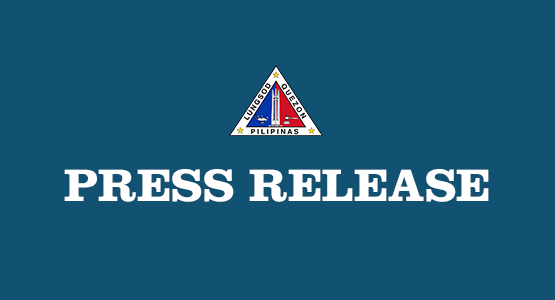
Quezon City Mayor Joy Belmonte tasked the city’s health department to continue conducting strict supervision and monitoring among the estimated 6,000 evacuees for any COVID-19 symptoms, especially after they have returned to their homes Monday morning.
“We will make sure that any possible infection will be prevented from spreading further to the communities,” said Belmonte.
According to Dr. Rolando Cruz, head of the City Epidemiology and Disease Surveillance Unit (CESU), the city’s contact tracing team is keeping a close watch on the evacuees.
Cruz said the evacuees, who were affected by Typhoon Rolly, will be contacted and asked periodically within the next two weeks about their health status, and if they are experiencing any flu-like or COVID-related symptoms such as cough, colds, and fever.
“We’ll exhaust all our means to contact and monitor our evacuees, ensuring that everyone is covered.”
Suspected cases or individuals who are reported to have developed any of the aforementioned symptoms will be scheduled for swab test and will be transferred to any of the nearest barangay quarantine or HOPE community caring facilities.
Cruz said the city has sufficient contact tracers to address all evacuees as well as other QCitizens because the CESU has received reinforcement from barangay-enlisted individuals and those recently hired through the Department of Interior and Local Government (DILG) initiative.
“We implore the cooperation of our citizens who were evacuated this weekend. We need your openness and honesty about your health status—symptoms or no symptoms,” said Belmonte.
The QC government has recently reported less than 1,000 active cases for the first time in months.
As of November 6, the city’s active cases is at 768, while recoveries are at 21,589 or 94% of the total validated cases in the city.






